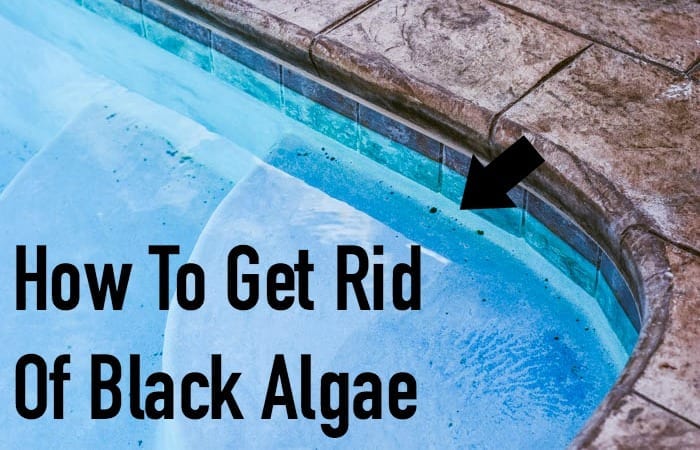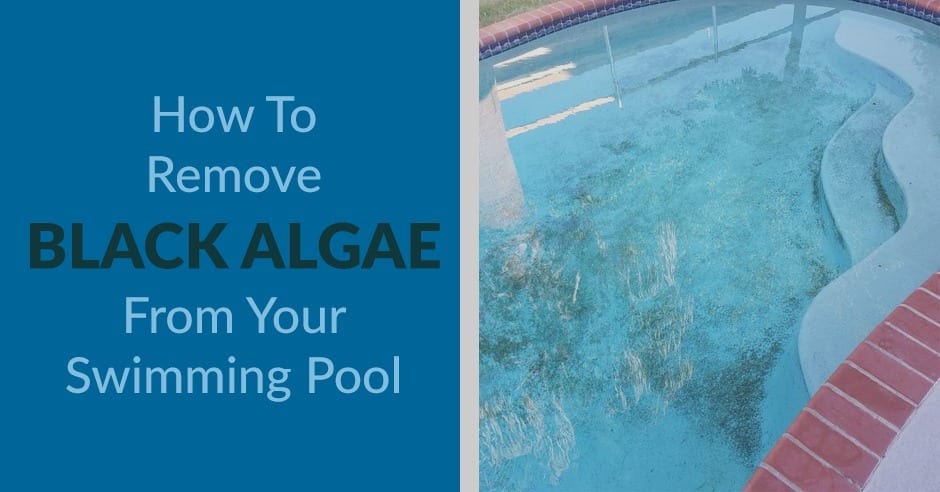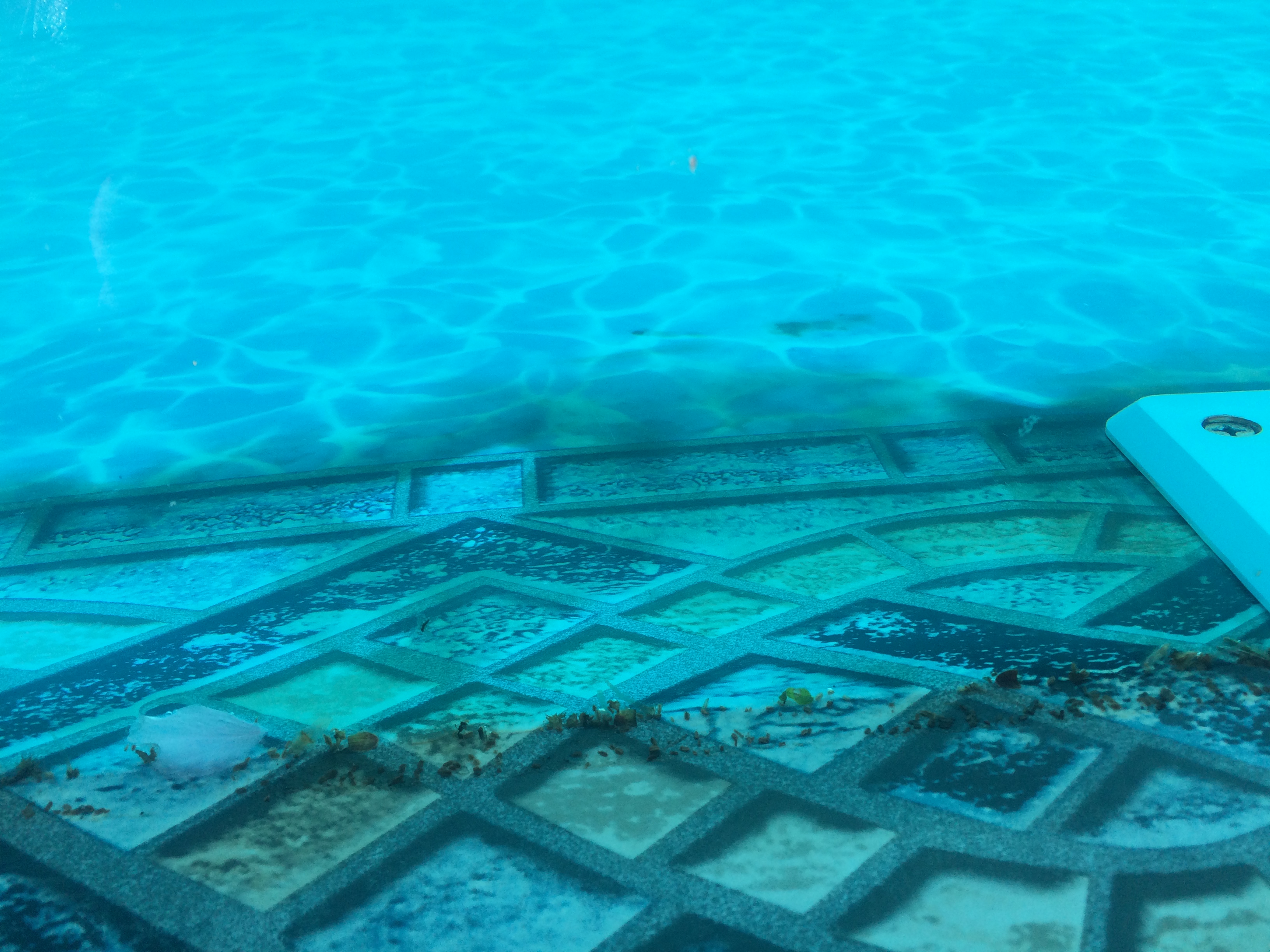What is Pool Algae? Algae are single-celled plants that contain chlorophyll. Blue-Green Algae: Also called black algae, you can spot the dime to quarter-sized black or blue-green spots clinging to the pool's surfaces. Second, UV eliminates the organic matter found in pool water. In a typical
Black algae often gets into swimming pools by traveling on items like swimsuits, floaties and pool toys. This can happen when someone wears a swimsuit or Plus, they can best advise you on how long you'll need to wait before you can get back in the pool and can provide ongoing pool cleaning services.
How To Kill Black Algae in 10 Steps. You'll fail if you treat cyanobacteria like garden-variety green algae. If you ever hope to annihilate this aqueous menace, you're going 7. Brush the Pool. While the pump is running, scrub the surfaces at least two more times to eliminate any vestiges of black algae.
How to treat Black Algae and Resistant types of algae? Black algae is one of the most difficult varieties to control and eliminate. This algae can appear as a blackish The black spots could be black algae or it could be a problem with the pool finish. A 20-year old plaster finish would be
Need to eliminate algae from your pool? Check out this homemade algaecide and learn more about an offensive robot to help get the job done. You often find this menacing algae growing roots on your pool walls, leaving black dots that are sure to ruin your pool day.
Black pool algae is actually a bacteria. Its roots dig into concrete surfaces, making it extremely tough to kill. Getting rid of black algae requires several rounds of deep cleaning, and it How to Prevent Algae in Your Pool. Following these basic pool maintenance principles will help prevent future algae issues.

algae

algae killer leslie algaecide gallon half leslies
How to kill pool algae naturally by using salt generation. How well do swimming pool chlorine generation systems work at killing algae and keeping What's great about a sonic wave pool cleaner is that it's a 100% natural way to help eliminate algae that has zero impact on your swimming
How to Grow Algae in Your Pool? How to Get Rid of Algae from Your Pool. Despite your best efforts to prevent algae, those tricky little spores getaway in and start to grow. You need to apply it depending on the type of your pool algae. In the case of black algae, it may require shocking
It's bad enough to discover green algae in your pool. But black algae? Get ready, because you have some serious pool cleaning to do. And no one should
Black algae or blue-green algae in pools is usually transferred from natural bodies of water like oceans, ponds, and lakes by clinging onto swimwear. If the swimwear is hasn't been washed before using a swimming pool, the algae can be transferred into the pool. Black algae doesn't
What causes black algae in swimming pools? You might be alarmed if you see black algae. So, let's answer some frequently asked questions. How do you get rid of black algae in a swimming pool? Black algae are the hardest type of algae to eliminate from your pool, but it can be done.

algae delve
Black Algae On Steps & Bottom. How Do You Get Black Algae In Your Pool? You can get black algae through a variety of sources, but it's mainly introduced into your pool through sources such as unwashed bathing suits or inner tubes that you may have used in the ocean or the river.
If black algae are blooming in your pool water, then you should take measures to remove it completely. Follow these steps to rid your pool of any trace These roots need to be destroyed to stop algae from growing back. You can also rub chlorine tablets at the place of algal growth after brushing it properly.
Pool algae caused by improper balancing or high summer temperatures can cause a green, yellow The good news is that we are going to explain how to eliminate algae and get your pool looking If you have algae in your pool right now the first step is to identify what kind you are dealing with so

algae pool rid swimming bomb skimmer stuff totallythebomb well fast visit
algae, black algae, chlorine, how-to, maintenance guide, pool brushes, shock, suggested. Scrub your pool. Use a high quality nylon brush and give the black algae a good scrubbing. Remember, you'll need something tough and sturdy if you want to get past that built-in protective layer.
Black algae generally penetrate porous pool surfaces like concrete and gunite. Once these surfaces are infested with black algae, it will take time and persistence to eliminate it. If you are one of the few that have black algae in a pool with a smooth surface, use the softer nylon bristle brush.
Black algae is a super resistant and hard-to-kill algae strain. It appears as small, black dots or blotches on your pool's walls, floors and surfaces. Black algae has a hard outer shell that protects the cells inside. Pools with porous surfaces like concrete, gunite and exposed aggregate are more
Black Algae is particularly stubborn (due to its protective coatings), and though while not harmful, is quite unsightly. Algas grow when several things have gone wrong in your pool in combination. Therefore, if you want to eliminate the root problem, there are a few things you should check.
How to Recognize Black Algae. Black algae don't float on the top of your pool like some algae types. So you should look for patches of "black mold" If you suspect that you have a patch of black algae in your pool, don't risk your health by going in! Black algae usually only cause an upset stomach,
Black algae is very similar to dark spots found in the shower or in the caulking around the tub. It can arrive in your pool from a swimming suit that was used in the ocean, or it can blow in on a breeze, in the form of air-borne spores. How to Remove Black Algae from a Swimming Pool.
Removing Black Algae From Your Pool. How to Stop Black Algae In The Future. That's a Wrap! Share on Pinterest. Black algae are single-celled organisms that grow in large colonies. They are like other forms of algae, since they also contain chlorophyll, but are the most difficult to remove


algae pool stains swimming removal spots causes clean
Type of algae on Pool. Algae is a rapidly grown living substance that comes in different types and colors. Different algaecides are suitable for different algae such as green algae, black algae, and others. So pick an effective one by following the methods on how to get algae out of the pool

pool algae swimming eliminate prevent chlorine step
Like any alga species, black algae (which are really blue-green algae that look black) will grow Algae tend to bloom in pools that have poor circulation, poor filtration, a high pH level, and a low Pressure washing with chlorinated water prior to re-surfacing should eliminate all algae-affected areas.
A green pool alga is the most common of all algae and it develops due to insufficient filtration and sanitation. Sometimes, you will see green algae in Watch this video to learn how to clean algae from your pool. 2. Hardest Cases Steps. If your pool has serious cases or especially stubborn
Black algae are small living organisms that penetrate porous pool surfaces like gunite and concrete. There is an effective way to treat black algae and eliminate them from your swimming pool water. If you are not too sure how much water your pool holds? Then you can use our pool volume
Black algae is probably the hardest algae to get rid of in your pool! But you'll finally understand what black algae actually is, why it's so bad for your pool, and how to also prevent it from ever coming back again.
Early black algae formation is noted by small black dots on pool floors and walls or sides, often in shaded areas and areas with crevices, cracks, or imperfections in pool surfaces. Below are the general steps used to eliminate the various algae types discusses earlier.

algaecides month algaecide treat pool
Learn how to treat and prevent algae in swimming pools in this article. Black algae is more typically found in concrete or plaster finished pools because of their rough surfaces. It is known for a heavy slime layer and "skeletal growths" that make it impervious to normal chlorine levels.
Pool algae comes in different colors: green, blue, yellow, and black, each with its own problems and solutions. What Causes Algae to Form in a Pool? The main cause of algae in a swimming pool is low free chlorine(FC) This comprehensive DIY guide should help in your efforts in eliminating algae.
Black algae can be carried into the pool by anything, from swimming suits that were used in the ocean or other pools infected with black algae, to just How to Get Rid of the Black Algae in Your Pool. Once these organisms - or plants, depending on who you ask - take root in your pool, they are
